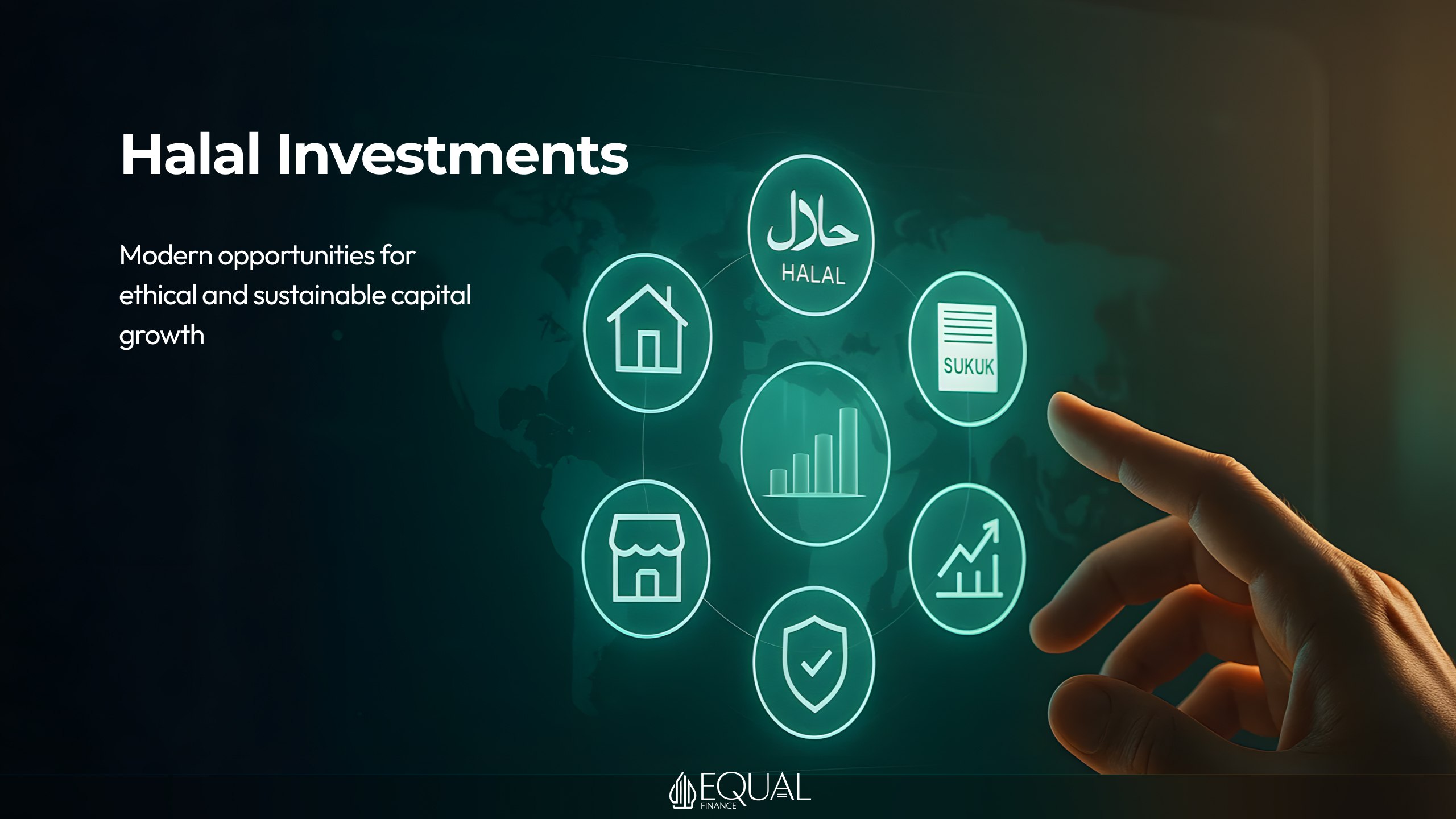Halal investments, compliant with Sharia principles, are gaining traction not only among Muslims but also among investors seeking ethical and sustainable financial instruments. In 2025, the global Islamic asset market is valued at $5 trillion, growing at 15–25% annually. This article explores key halal investment options, their features, and prospects, based on the latest data.
What Are Halal Investments
Halal investments adhere to Islamic principles, prohibiting riba (interest), gharar (uncertainty), and financing of haram activities such as alcohol, tobacco, pork, gambling, or pornography. Sharia encourages socially responsible investments that preserve religion, life, intellect, family, and property. Key instruments include direct asset ownership, partnerships, and trading without speculative elements.
In Russia, where an experiment in partner financing is gaining momentum, halal investments are attracting attention for their ethical appeal and growth potential. Let’s explore the main options available to investors.
Stocks of Halal Companies
Investing in stocks of Sharia-compliant companies is one of the most popular halal investment types. These companies undergo rigorous screening based on standards from AAOIFI (Accounting and Auditing Organization for Islamic Financial Institutions) and DFM (Dubai Financial Market). Criteria include:
- No involvement in prohibited sectors (alcohol, tobacco, gambling, etc.).
- Debt levels (accounts receivable/payable) not exceeding 30–33% of assets.
- Interest-based income constituting less than 5% of total revenue.
In Russia, the “Islamic Investment Index,” launched by Sberbank and Moscow Exchange in 2021, includes 15 companies such as LUKOIL (13.68% weight), NOVATEK (12.96%), Yandex (11.8%), and Tatneft. These firms meet Sharia standards and have high liquidity (at least 15%) and free-float (at least 5%). Globally, indices like the S&P 500 Shariah Index and Dow Jones Islamic Market World include stocks of tech giants like Apple and Microsoft, provided they pass screening.
Private investors can access platforms like Sahih Invest and EF Broker, which offer updated lists of halal stocks. If a stock loses its halal status, Sharia standards recommend selling it within 30 days, but income purification is not required.
Mutual Investment Funds (PIFs)
Mutual investment funds (PIFs) are a convenient halal investment tool, allowing investors to co-own a portfolio of assets rather than act as creditors, aligning with Sharia. In Russia, funds like Ak Bars Capital’s OPIF “LALE” and BCS’s “Halal Fund” invest in Sharia-compliant stocks, focusing on long-term asset growth.
For example, the “Aktivo Twenty” PIF includes retail real estate, such as the Samolet shopping center, free of tenants selling alcohol, pork, or operating in gambling. Such funds can yield 18–22% annual returns over a 10-year horizon. PIFs are ideal for those seeking diversification without in-depth company analysis.
Islamic Bonds (Sukuk)
Sukuk, or Islamic bonds, are an alternative instrument that avoids fixed interest income, prohibited by Sharia. Instead, sukuk represent ownership in a tangible asset (e.g., real estate or infrastructure), with income derived from the asset’s profits. Unlike conventional bonds, sukuk do not guarantee fixed returns, reducing speculative risks.
In Russia, the sukuk market is still emerging, but in 2024, forums like the Russian Islamic Economic Forum (RIEF) discussed plans for issuing Islamic bonds. Globally, sukuk are popular in the UAE, Malaysia, and Saudi Arabia for financing infrastructure. Russian investors can access international sukuk through foreign platforms, but careful review of terms is essential.
Real Estate
Real estate is one of the most stable assets for halal investments, involving direct ownership without reliance on credit instruments. Sharia permits investments in residential, commercial, or industrial properties, provided they are not linked to prohibited activities. For instance, leasing space to stores selling alcohol or casinos is impermissible.
In Russia, halal real estate investments are often facilitated through PIFs or direct purchases. The Samolet shopping center, mentioned earlier, is an example of Sharia-compliant commercial property. Investors can expect steady rental income and asset appreciation, particularly in high-demand regions like Moscow or Kazan.
Direct Business Ownership
Investing in a business or partnership (mudaraba, musharaka) is another halal option. Mudaraba involves an investor providing capital while a managing partner runs the business, sharing profits in an agreed ratio. Musharaka is co-ownership, with all partners sharing risks and rewards.
For example, the IMAN platform in Uzbekistan channels investor funds into financing trade in appliances and furniture via installments. If a 1 million soum investment yields 300,000 soum in profit annually, the investor receives 90% (270,000 soum), and the platform takes 10%. This approach minimizes risks and complies with Sharia.
In Russia, such projects are rare, but small businesses in Muslim-majority regions like Dagestan or Tatarstan hold promise. However, direct business ownership requires significant time and expertise.
Fintech and Crowdfunding
Islamic fintech is a fast-growing segment offering halal investment products through digital platforms. In 2022, a Kazakh startup focused on halal BNPL (buy now, pay later) investments raised $1 million from investors, including UMAY Angels Club and Uzcard Ventures. These platforms enable financing of installment purchases, aligning with murabaha principles.
In Russia, fintech solutions are developing more slowly, but platforms like Sahih Invest provide tools for screening halal stocks and managing portfolios. Crowdfunding platforms based on musharaka principles are also gaining traction, allowing investors to co-finance projects.


